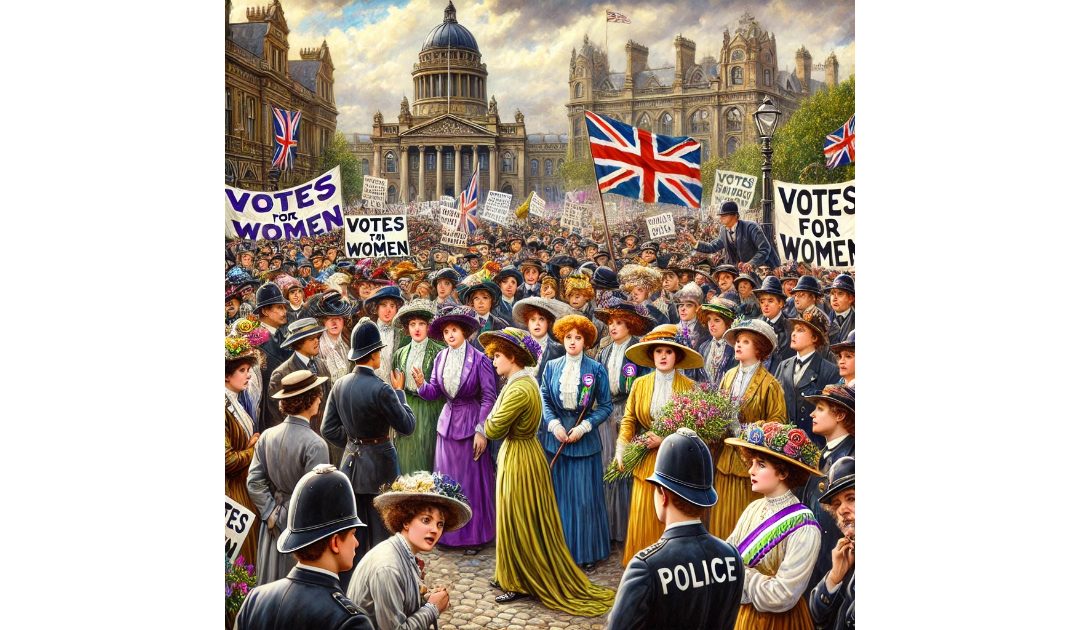On the 6th February 1918 women over the age of 30 were granted the vote in the United Kingdon. The suffragettes were a group of women activists in the late 19th and early 20th centuries who fought for women’s right to vote. Their movement, which emerged primarily in the United Kingdom, was part of a broader global struggle for women’s suffrage and gender equality. The term “suffragette” specifically refers to members of more militant factions within the suffrage movement, notably the Women’s Social and Political Union (WSPU), led by Emmeline Pankhurst and her daughters Christabel and Sylvia.
The suffragettes arose in response to the perceived inefficacy of peaceful lobbying by earlier suffrage groups, such as the National Union of Women’s Suffrage Societies (NUWSS), led by Millicent Fawcett. Frustrated by the slow progress, the WSPU adopted the motto “Deeds, not words” and began using more confrontational tactics to draw attention to their cause.
Their methods included chaining themselves to railings, disrupting political meetings, smashing windows, and organizing hunger strikes while imprisoned. These actions provoked widespread public and governmental reaction, ranging from support to harsh criticism. The British government often responded with arrests and force-feeding of hunger-striking suffragettes, a practice that fueled public sympathy for the movement.
One of the most dramatic moments of the suffragette campaign occurred in 1913 when Emily Davison, a WSPU member, stepped in front of King George V’s horse during the Epsom Derby. She was fatally injured and became a martyr for the cause, symbolizing the suffragettes’ willingness to sacrifice their lives for women’s enfranchisement.
World War I (1914 – 1918) marked a turning point for the movement. Many suffragettes suspended their militant activities to support the war effort, contributing significantly to industries and services traditionally dominated by men. Their contributions helped shift public opinion about women’s capabilities and roles in society.
In 1918, the Representation of the People Act granted voting rights to women over the age of 30 who met certain property qualifications in the UK. Ten years later, in 1928, women achieved equal voting rights with men.
The suffragettes’ legacy is profound. Their courage and determination not only secured voting rights for women but also inspired future generations to challenge gender inequality and fight for social justice worldwide.
In the Sir Anthony Standen Adventures, I think it’s fair to say that from Fire and Earth onwards, the lead role has passed to Maria, Sir Anthony’s daughter. I’m trying to do my bit for equality.

